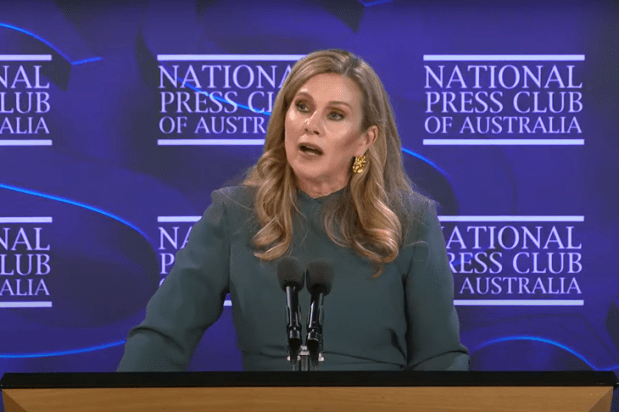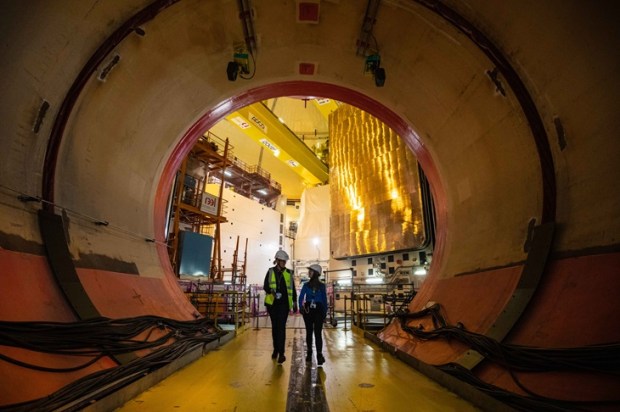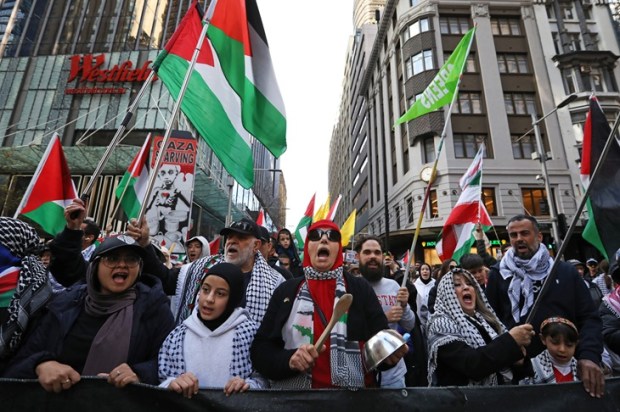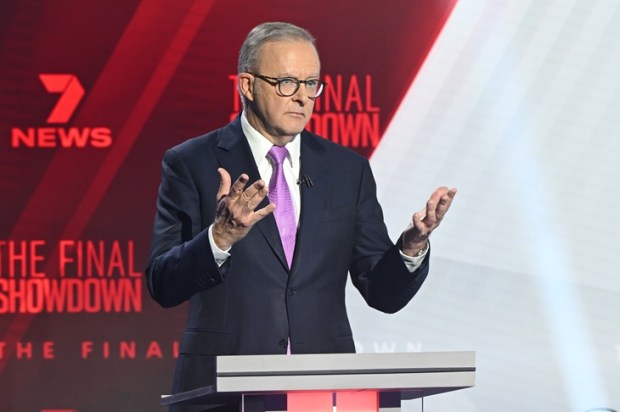Once upon a time, Australia knew who it was. A plucky, sunburnt frontier of sheep, surfboards, and mild xenophobia – where the Prime Minister could wrestle a crocodile, down a pint, and still sign a trade deal before lunch. These days, the national brand is more confused. Are we a repentant colonial outpost, clutching Uluru Statements like rosary beads? Are we an Asia-Pacific ‘partner’, nervously trying to befriend Beijing while borrowing submarines from Washington? Or are we just America’s beach house – cleaned up for the summer, weaponised for the winter, and largely irrelevant in between?
Whatever it is, Australia is having an identity crisis. And it’s not pretty.
Convict Island: Guilt, Trauma, and the National Shrug
It starts, as many things do here, with a hangover. Not from last night’s VB, but from 1788. The penal colony past looms large in the national psyche. There’s a curious defensiveness in the Australian character – proud of being underestimated, yet permanently paranoid that we are. We turned our convict stain into a badge of pride, but like the ageing surfer who still brags about that one wave in ’96, it’s become a bit tragic.
Much of our politics now seems driven by historical therapy. The push for an Indigenous Voice to Parliament – noble in spirit, shambolic in execution – was meant to offer national closure. Instead, it opened up fresh wounds. Guilt is now policy, and symbolism substitutes for solutions. Statues come down. Flags go up. Slogans get longer. No one’s quite sure if we’re healing or just virtue-signalling in high-vis.
Global Citizen: Net Zero, Nice Speeches, No Clue
Meanwhile, Australia likes to imagine itself as a suave global citizen – climate-conscious, multilingual, and fiercely devoted to multilateralism, especially when we get to chair something. We deliver glowing speeches at the UN and climate summits. We’re committed to Net Zero by 2050, provided we can still dig up half the planet and ship it to Asia by 2049.
We love the optics of ‘punching above our weight’, even if that usually means showing up late to a war with someone else’s guns within the context of Aukus. We lecture others on human rights while detaining asylum seekers on islands we can’t pronounce. We call for peace in the Pacific while quietly buying long-range missiles. If this is what being a model global citizen looks like, it’s no wonder the neighbours are nervous.
America’s Beach House: Still Lucky, Still Leased
Let’s be honest. Beneath the speeches and solar panels, Australia remains fundamentally tethered to the Stars and Stripes. Our military is basically a well-staffed annex of the Pentagon. The Aukus submarine deal – announced with more fanfare than an Olympics bid – is less about deterrence than dependency. We’ll be waiting until the 2040s to get our first nuclear toy, by which time the war it was meant to prevent will probably be over. Who knows if Trump 2.0 will want a mineral deal?
Culturally, we’ve outsourced our soul to Los Angeles. Our teenagers know more about gun control in Texas than literacy rates in Arnhem Land. Our politics now mimics the worst of America’s culture wars – with Twitter mobs, cancel campaigns, and a class of inner-city professionals fluent in Hollywood progressivism but unable to find Dubbo on a map.
We’ve become, in effect, America’s beach house. Lovely scenery, bit of charm, but always ready to hand over the keys when the grown-ups arrive.
Class Confusion and Climate Contradictions
Albanese, to his credit, has tried to straddle the divide. One day it’s an emotional speech on reconciliation; the next, he’s opening a gas terminal in a hard hat and hi-vis vest. It’s as if the nation’s soul has been subcontracted to a PR firm.
Nowhere is this more farcical than in our climate policy. Australia wants to be a leader in green innovation – carbon offsets, hydrogen hubs, solar farms the size of Belgium. And yet, we remain one of the world’s largest exporters of coal and gas. It’s a bit like running a vegan café that sells steaks out the back door.
Corporates have joined the pantomime. ASX-listed firms now issue sustainability reports the length of Tolstoy novels. Banks sponsor Mardi Gras floats while closing rural branches. Universities preach climate justice in lecture halls funded by mining royalties. It’s all very diverse. And very confused.
Our Place in the Region: The Pacific’s Middle Manager
Australia wants to be the reliable middle power of the Indo-Pacific. We host security dialogues. We fund infrastructure in the Solomon Islands. We nod earnestly at ASEAN meetings. But let’s not kid ourselves: to many in the region, we’re just the white guy in the room pretending to be local.
Beijing, for all its menace, speaks fluent infrastructure. It builds bridges. We build ’capacity’. And in the end, influence often follows concrete.
What Comes Next?
There is a way forward, but it requires us to grow up. National identity isn’t a costume you wear at summits. It’s forged in confidence, not confession. Australia must move beyond performative guilt and figure out what it actually stands for, not just what it apologises for.
We can reconcile with Indigenous Australians in substance, not just slogan. We can pursue clean energy without self-flagellation. We can engage with Asia from a position of mutual respect, not diplomatic cosplay. And we can remain allies with America without acting like a doormat with nuclear ambition.
Final Word: The Lucky Country, Still Lost
Perhaps the most honest symbol of modern Australia will come at next year’s Eurovision: a contestant singing about climate anxiety, sponsored by a government projecting record fossil fuel royalties. Name the song VB-man.
We are, in the end, a nation sprinting toward irrelevance in flip-flops – clutching a latte, a rainbow flag, and an ESG report, all while muttering something about ’the vibe’. Still lucky, yes. Still free, for now. But increasingly unsure what either really means. Throw another shrimp on the barbie!, in the meantime.

























